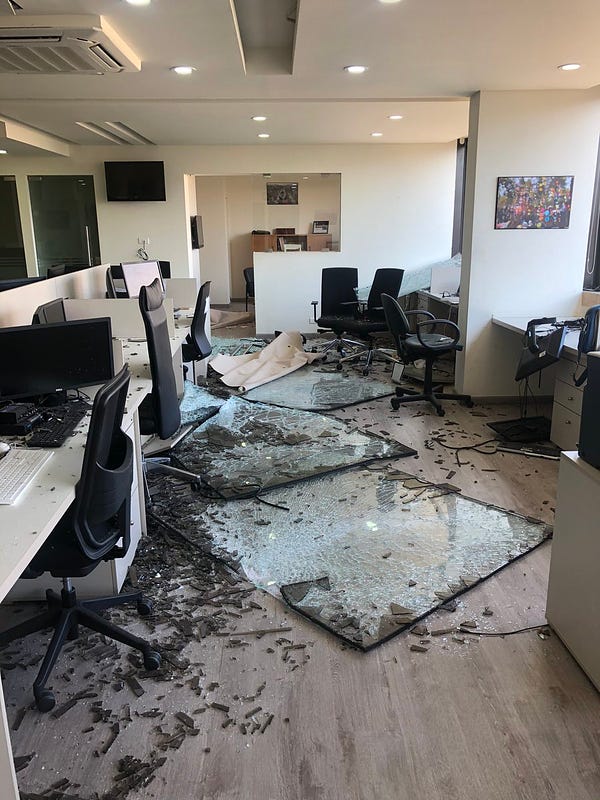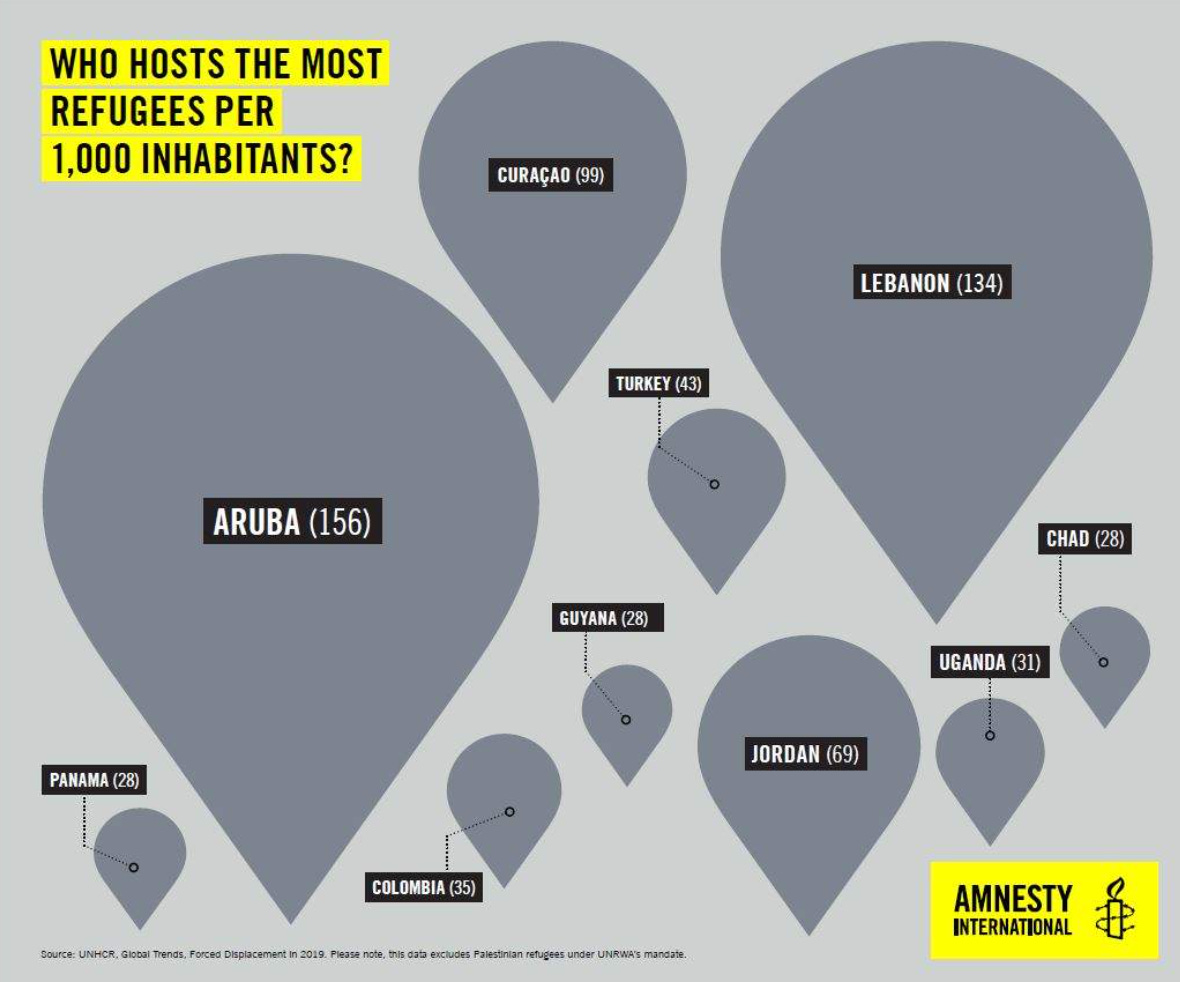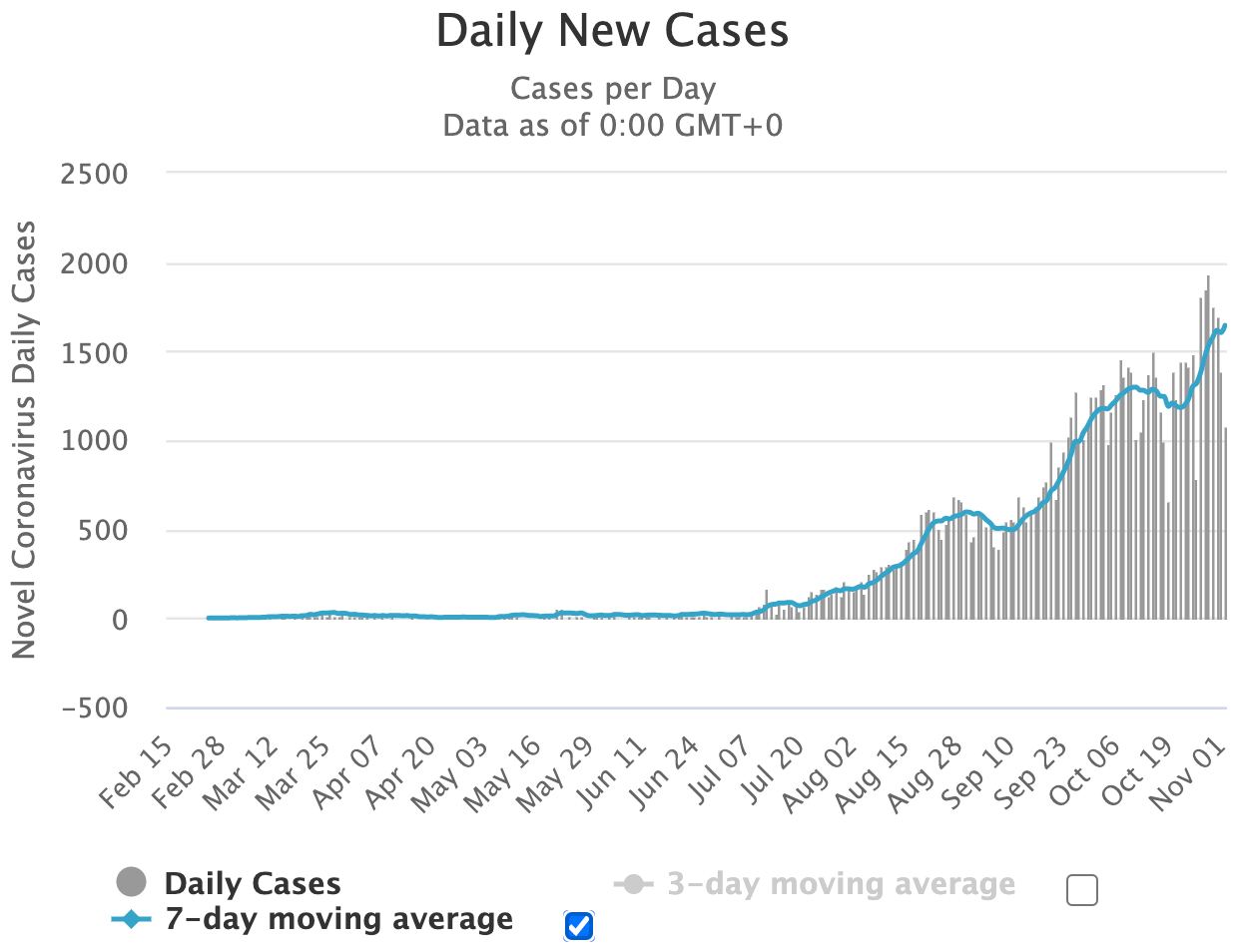Hello folks! Happy U.S. election day and welcome to another episode of Inside The Newsroom! Best of luck to everyone voting today, I’ll be following along every step and making a whole lot of charts along the way!
Before I do, I can’t wait to share my conversation with Dalal Mawad, senior producer and correspondent for the Associated Press, and perhaps the most accomplished guest at such a young age we’ve ever had on the podcast. I was also joined by Aina, my very first co-host, as we learned from Dalal what it was like living and reporting through the huge chemical explosion in August, and how the heck the country escapes its deep political and economic crises.
Be sure to check out last week’s episode with New York Times editorial writer Binyamin Appelbaum, who took us inside what it was like to interview the Democratic presidential candidates last year, his views on news reporting vs opinion journalism, and what policies are needed to solve the harshest income inequalities highlighted by Covid-19… 👇
I’m still figuring out next week’s guest, so until then, enjoy this week’s… 🤓
Job Corner
We upped our game to add almost 200 new postings to the job board, taking our total to 900! Help us out be spreading the word!
Data Corner
Refugees: Database on the world’s refugees, from the UN
Protests: Global mass protest and conflict data, from ACLED
Who is Dalal Mawad?
Dalal was born and raised in Lebanon and has carefully observed everything that’s happened in her country over the past 15 years. She graduated with a bachelor’s in economics from the American University of Beirut, a master’s in international political economics from the London School of Economics, and a master’s in journalism from Columbia. Oh, she also happens to be fluent in English, Arabic, French and Spanish. I’m not jealous at all…
Dalal covers the entire Middle East and North Africa region, and has reported on several wars and other disasters in the past, including Syria’s civil war and Palestine’s humanitarian crisis. Before the AP, she reported for the UN, Al Jazeera, and the New York Times. She’s also the recent winner of the Samir Kassir Award, the MENA region's most prestigious journalism award, for her feature on Lebanon’s drag performers.
Dalal 👇
Blast Investigation Update
Tomorrow marks three months since one of the largest non-nuclear explosions in history, at a warehouse in the Port of Beirut that killed more than 200 people and ripped the city to shreds. Political interference and a seriously flawed judicial system mean we still don’t have answers on who was responsible. Calls for an independent international investigation were discarded as a waste of time by President Michel Aoun, making a credible and impartial domestic investigation seemingly impossible.
Two fires that broke out on September 8 and September 10 prompted allegations of evidence tampering, and as of October 13, reports say 25 people have been arrested in relation to the explosion. But the authorities have failed to publicly detail any evidence, and not a single minister has been questioned as a suspect. Meanwhile the FBI has also failed to conclude what caused the blast, and U.S. government sources have suggested the blast was an accident. The country’s economic and political woes mean there’s simply not enough money to compensate the people of Beirut, as outlined in Rania’s tweet below…


Crisis No. 1: Politics
Lebanon’s political and economic crises are directly linked and haven’t appeared overnight. Before we dive into where the economy stands, let’s recap a tumultuous 15 years that is the root for most of the country’s problems…
2005: Prime Minister Rafik al-Hariri is killed in a car bomb, killing 21 others. Hezbollah enters government for the first time.
2006: Hezbollah goes to war with Israel, which kills 1,200 Lebanese in five weeks.
2008: Diplomatic relations with Syria are established for the first time since both countries gained independence in the 1940s.
2011: The government of Saad al-Hariri, son of former PM Rafik al-Hariri, quits over the UN-backed trial that indicted four senior Hezbollah members over the killing of Rafik. Syria’s civil war erupts and Lebanon begins taking in refugees and asylum seekers.
2012: Syria’s conflict spills into Lebanon with deadly clashes between supporters and opponents of Syrian President Bashar al-Assad. Syria fires rockets into Northern Lebanon.
2015: Beirut’s main landfill site is closed without an alternate location arranged, sparking mass protests over rotting waste in the streets. The situation is perfectly summed up by chants of “You stink!” aimed at the government.
2016: Saad al-Hariri returns as PM, but tenders his resignation a year later over ties with Saudi Arabia, and then rescinds it a month later.
2019: al-Hariri quits for real, and more protests start over a government move to tax internet calls.
2020: al-Hariri returns for a third time and has the near-impossible job of healing deep economic and political wounds, after two more prime ministers come and go.
Crisis No. 2: Economics
A plethora of reasons are responsible for why Lebanon’s economy has collapsed, so we’ll run through some of the top-level causes and consequences. By some measures, the country is in its worst ever economic crisis: Government debt has soared to record levels and interest payments on that debt represent around half of all state revenues, one of the highest in the world. Also separating Lebanon from most countries is its hyperinflation, which soared to 112 percent this year, meaning the country has moved into uncharted territory similar to Venezuela.
The situation has been exacerbated because the U.S. dollar, of which Lebanon’s economy relies so heavily on, has appreciated against the Lebanese pound so much that Lebanon’s buying power has decreased to the point that the pound is practically worthless. Because dollars have become so scarce, banks are preventing people from withdrawing their money. International aid given to Lebanon has skyrocketed since the onset of the Syrian civil war in 2011, which has seen Lebanon take in around 1.5 million refugees, leaving only Aruba to host more refugees per capita. And in the aftermath of August’s explosion, the bulk of pledged foreign assistance is conditional on major political reforms, which haven’t yet taken place.
Credit: Amnesty International
What’s Next for Lebanon?
Good question and one that we can only speculate over. Lost in the economic and political woes is the pandemic, which sees Lebanon’s daily cases and deaths continue to soar. Just when you think it can get any worse, new basement levels keep on appearing. Dalal wrote for the AP on what she thinks will happen next, so I’ll let you read that, as well as what my WSJ colleagues think could happen…
Credit: Worldometers
That’s all for today. See you tomorrow for Inside The Middle East 👋




















🎧 #86 — Dalal Mawad (Associated Press)